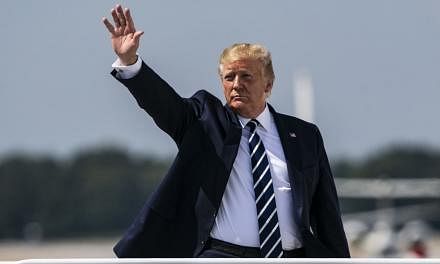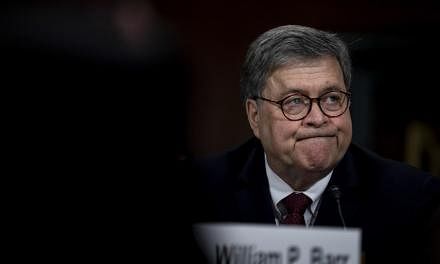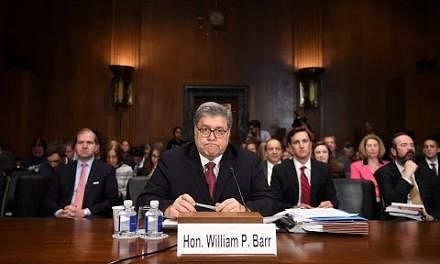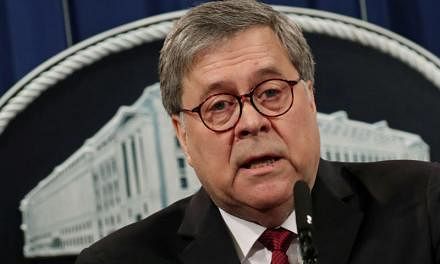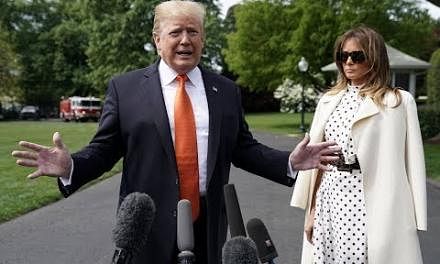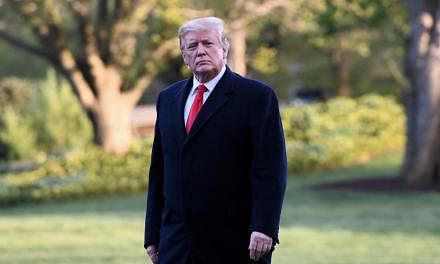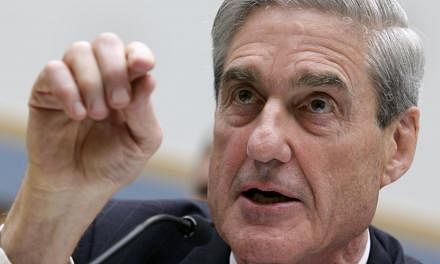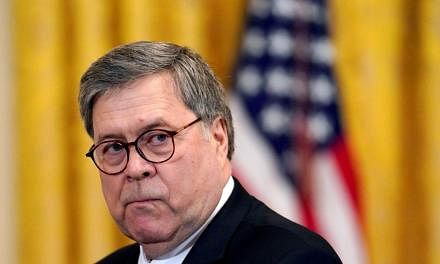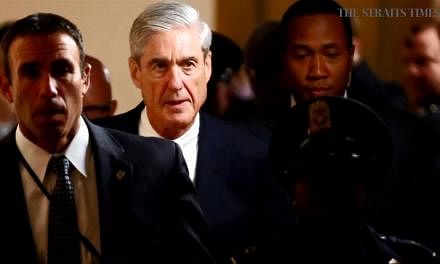WASHINGTON (AFP) - United States Attorney General Bill Barr released a summary on Sunday (March 24) of Special Counsel Robert Mueller's long-awaited report into allegations that Mr Donald Trump's campaign colluded with Russia in the 2016 presidential election.
Here are the main findings of the two-year investigation the President regularly denounced as a witch hunt, before claiming vindication upon its completion.
COLLUSION
Mr Mueller found that there was conclusive evidence that Russia did interfere in the election, both through a coordinated campaign of disinformation and by hacking e-mails from Mr Trump's campaign rival Hillary Clinton's election team.
Mr Barr has released a summary of the long-awaited report by Mr Mueller on the President's 2016 campaign and allegations of collusion with Russia.
In a letter to lawmakers, Mr Barr said that Mr Mueller found that there had been "multiple offers from Russian-affiliated individuals to assist the Trump campaign".
But quoting directly from Mr Mueller's report, Mr Barr said that the special counsel's investigation "did not establish that members of the Trump campaign conspired or coordinated with the Russian government in its election interference activities".
OBSTRUCTION
Republican Trump defied months of negative polling to defeat Democrat Clinton in the November 2016 US presidential election
Many observers had predicted the biggest danger to Mr Trump came from a possible accusation of obstruction of justice, particularly over his decision to sack the FBI director James Comey, who headed the investigation before Mr Mueller.
But Mr Barr said that the evidence outlined in Mr Mueller's report "is not sufficient to establish that the President committed an obstruction-of-justice offence".
"In cataloguing the President's actions, many of which took place in public view, the report identifies no actions that, in our judgment, constitute obstructive conduct," Mr Barr added in his letter.
But while Mr Barr - who was appointed by Mr Trump - concluded that the President had not obstructed justice, he acknowledged that Mr Mueller himself was inconclusive on the question of obstruction.
President Trump fired then-FBI director Comey in May 2017.
"The special counsel therefore did not draw a conclusion - one way or another - as to whether the examined conduct constituted obstruction," he said.
"The special counsel states that 'while this report does not conclude that the President committed a crime, it also does not exonerate him'."
NO MORE INDICTMENTS
Mr Mueller brought charges against six former Trump aides: Michael Cohen, Michael Flynn, Paul Manafort, Roger Stone, Rick Gates and George Papadopoulos.
Mr Trump's former national security adviser Flynn, his former personal lawyer Cohen and his campaign chairman Manafort are among the 34 individuals already indicted by Mr Mueller, but they will be the last, according to Mr Barr.
"The report does not recommend any further indictments nor did the special counsel obtain any sealed indictments that have yet to be made public," Mr Barr said in his letter to the heads of the Senate and House judiciary committees.

